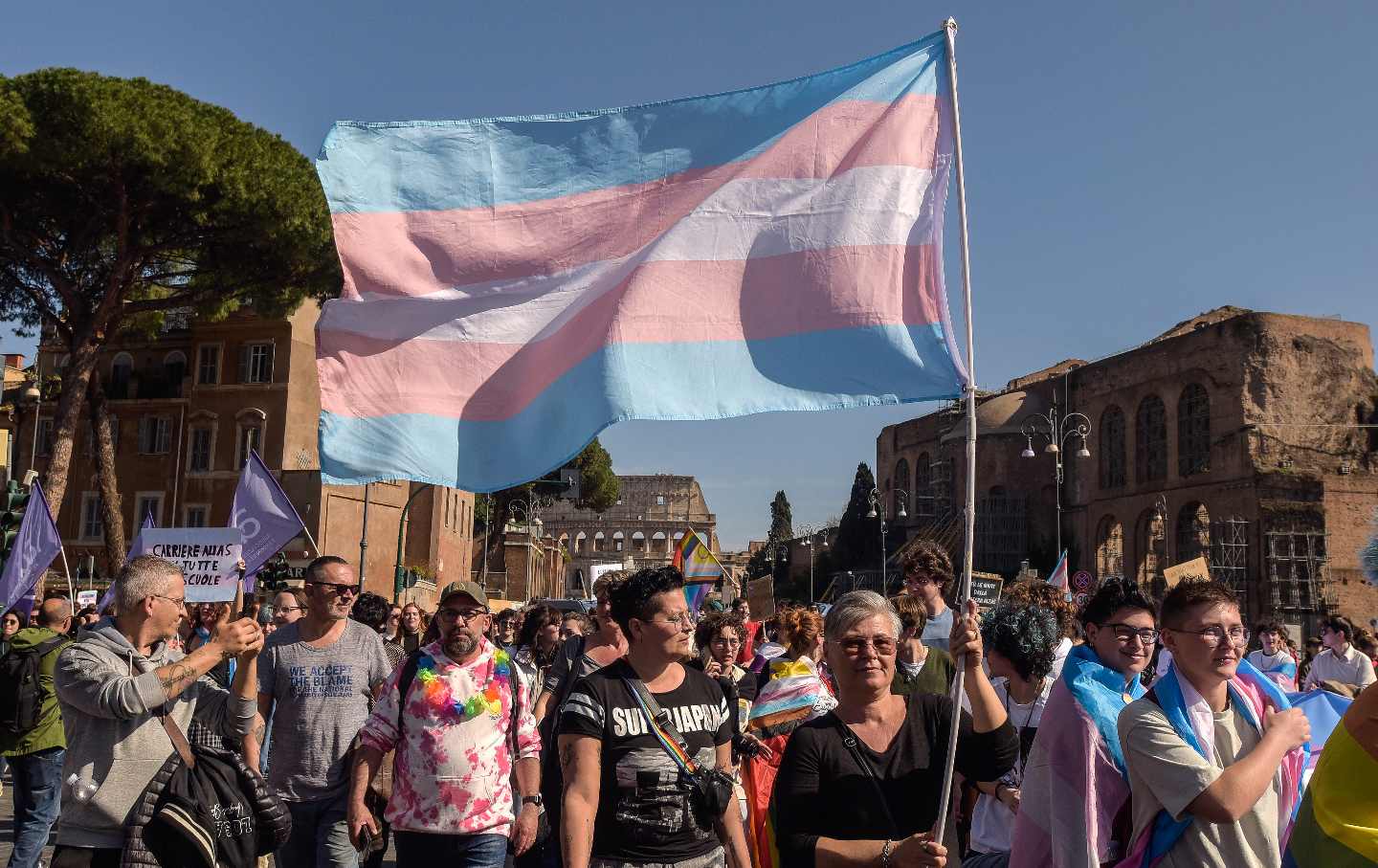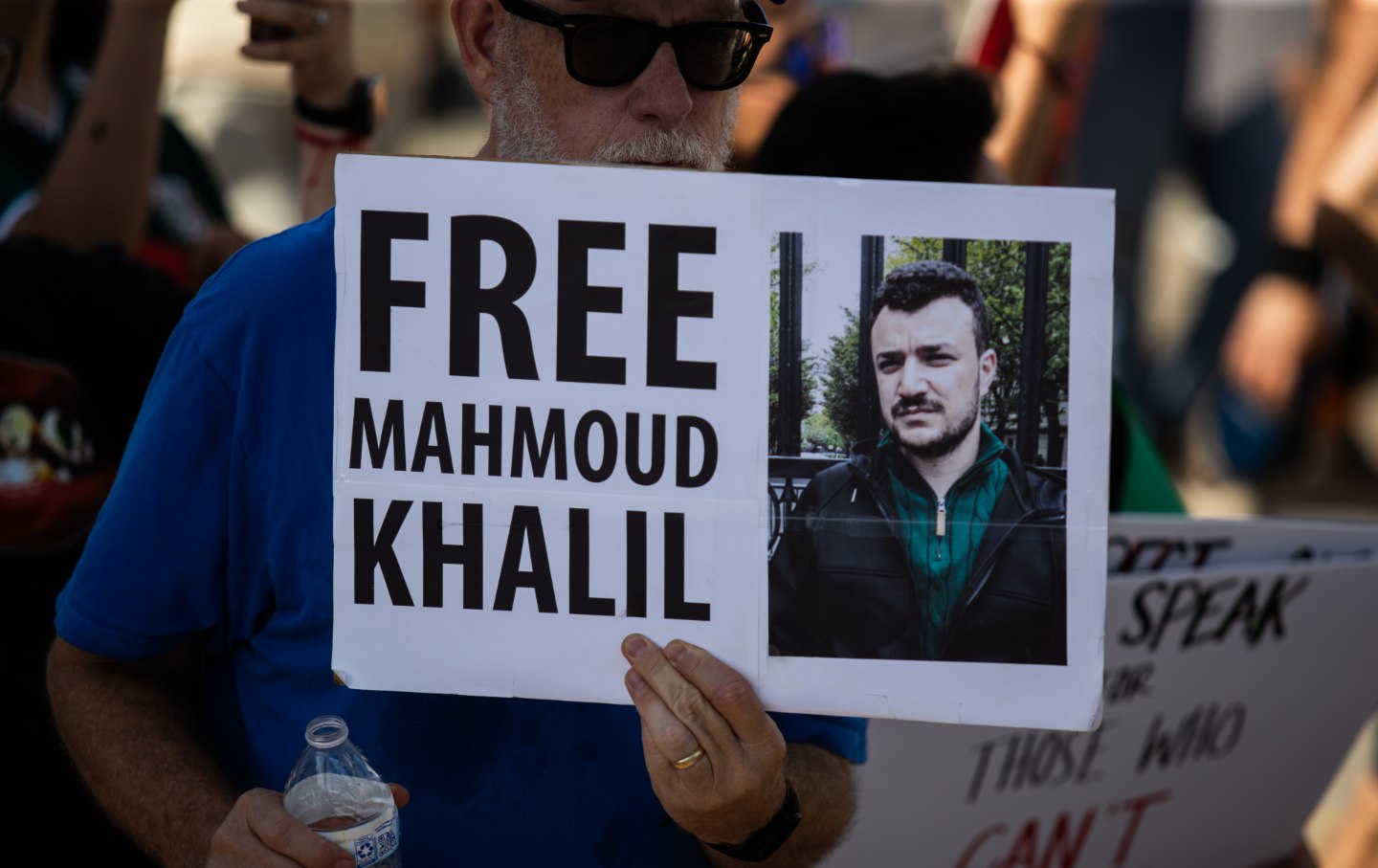What the Hell Is Posse Comitatus Anyway?
Everything you wanted to know about the law that’s supposed to prevent presidents, like Trump, from deploying the military against civilians in places like LA.

California National Guard members during a demonstration following federal immigration raids in Los Angeles on June 9, 2025.
(Ringo Chiu / AFP via Getty Images)If you are of a certain age, you might remember the Season 3 finale of The West Wing. The episode was titled “Posse Comitatus,” and it involved President Jed Bartlet ordering the assassination of the defense minister of a made-up Muslim country. In the penultimate scene, the staff is told that the assassination, which will be carried out by the Marines, has to take place in Bermuda because of “Posse Comitatus,” the law that prevents the US military from conducting operations on US soil.
The Posse Comitatus Act of 1878 has been mentioned a lot in the past few days, as Donald Trump has deployed 4,000 National Guard troops and 700 active-duty Marines to Los Angeles to quell a level of protest that could safely be contained by a detachment of rent-a-cops from Walmart. The law prohibits the US military from conducting “law enforcement” operations within the United States; the same goes for the National Guard when it is acting on orders from the federal government. Please note the date of the act’s passage. The Posse Comitatus Act was passed as part of the end of Reconstruction. It was meant to prohibit the federal government from using its standing “Union” army to enforce civil rights laws in the South. The West Wing never tells you that.
Given the politics around the act’s passage, there were, of course, exceptions. Posse Comitatus can be broken with the express will of Congress, or in order to defend an expressed provision of the Constitution. The Insurrection Act of 1807 can also trigger the suspension of the Posse Comitatus Act and allows the president to deploy the military domestically in cases of, well, insurrection, invasion, or rebellion. Should the South ever “rise again,” the president could deploy the military to stop it, again.
Technically, the current situation meets none of these criteria. Los Angeles is not in rebellion against the federal government. It’s not being invaded by Mexico. California Governor Gavin Newsom has not requested the assistance of the National Guard. And Trump has not (yet) invoked the Insurrection Act to support his use of military force. All this arguably puts him in violation of the Posse Comitatus Act.
But that doesn’t mean Trump won’t get away with it. The Posse Comitatus Act has holes big enough to drive a tank through, and Trump is already using rhetoric designed to help him do just that.
For one thing, Posse Comitatus prevents the military from participating in law enforcement actions. Those actions are commonly thought to be things like collecting taxes, apprehending criminals, and, from the perspective of Southern white folks, enforcing the Voting Rights Act. Trump will argue that securing a Home Depot is not a “law enforcement” action. Ditto defending a government building or generally “protecting” the peace. That’s not a great argument, but it is a plausible one, as long as the National Guard isn’t being used to abduct immigrants. Indeed, we see National Guard troops deployed lawfully all the time, for all sorts of reasons.
We don’t see Marines deployed all the time, but Trump says they’re only providing “support” functions—as if they’re being sent in like the Army Corps of Engineers, but instead of supporting bridge reconstruction they’re supporting stomping on faces. I assume everything out of his mouth is a lie, but the reason he’s telling this one is that “support” functions probably don’t include “law enforcement” functions, and saying they’re just there for support will help Trump’s judges greenlight his military actions.
As for Trump’s failure to get Newsom’s go-ahead or invoke the Insurrection Act, Trump’s trying to get around those hurdles by invoking 10 USC 12406. This law allows the president to deploy the National Guard whenever there is a “danger” of rebellion or insurrection.
Newsom, in addition to giving a speech, has sued the Trump administration for its use of force, saying that Trump has far exceeded his authority under this law. Newsom is certainly right. There is no credible argument that LA is “in danger” of rebellion or insurrection. And even if there were, the law refers only to the National Guard; it says nothing about using active-duty Marines.
But the law has never been tested in court, which means the Supreme Court has never weighed in on how remote the “danger” of rebellion can be. I mean, there’s always a danger of rebellion if you get high and think about it long enough. The wolf is always at the door. Heck, I’m in danger of becoming a revolutionary every time I imagine Joni Ernst telling sick people to stop being poor.
Everything I know about the current crop of monarchy aficionados running the Supreme Court tells me that Newsom’s lawsuit will fail. Even if the lower courts support Newsom’s challenge (and that’s a big “if” given how untested all of this is), the Supreme Court will continue its trend of lifting lower-court injunctions restraining Trump. Then, the high court will delay its consideration of this complaint, Trump will eventually pull the troops back, and the court will declare the entire issue “moot,” without ever having to rule on its merits. No precedent will be set that could allow a future president to deploy National Guard troops and US Marines to force Georgia to let Black people vote, same as it ever was.
And so, once again, we are in a situation where Trump is technically in violation of a well-established legal principle—in this case, the principle that you can’t send in the freaking Marines every time a state governor pisses you off. But, as usual with Trump, violations of such principles don’t matter in the face of raw power. The law will not force Trump to remove his jackboots from California. The law won’t even force him to use the right law (the Insurrection Act) to try to do this thing that he shouldn’t be able to do.
Popular
“swipe left below to view more authors”Swipe →The law will not stop Trump’s attack on LA, because laws do not stop authoritarians. Only the people can do that. And the people, a majority of them, elected Trump to do exactly what he is doing: use violence against the Americans they disagree with.
The biggest lie in the Posse Comitatus episode of The West Wing was the implication that Bartlet had to be sneaky when murdering a Muslim leader, in 2002, less than a year after 9/11. Bartlet could have ordered the Marines to shoot the guy on Fifth Avenue, and a majority of Americans watching the show would have cheered. Those same people now cheer for Trump.








